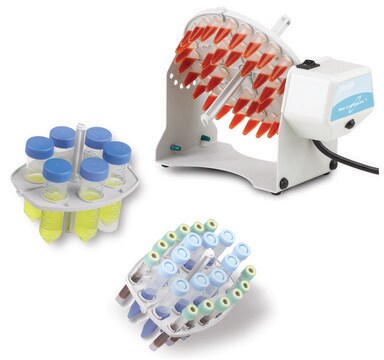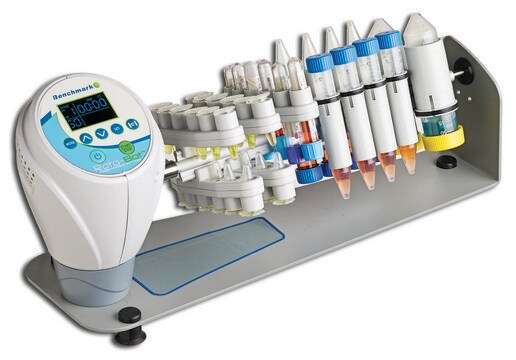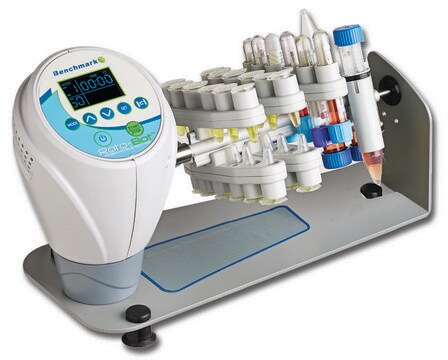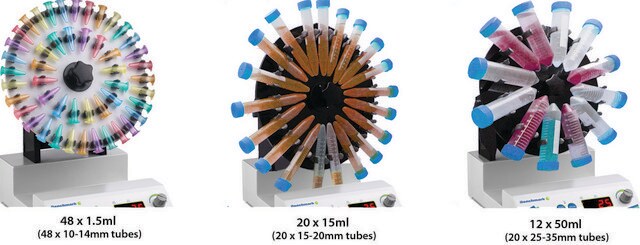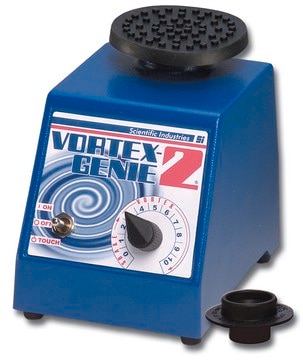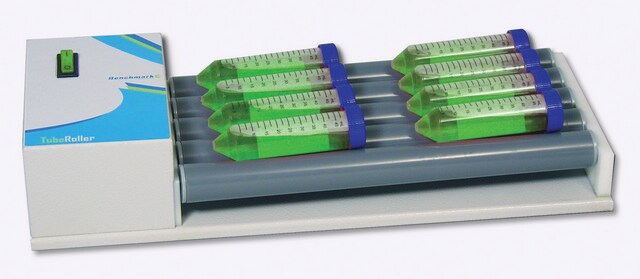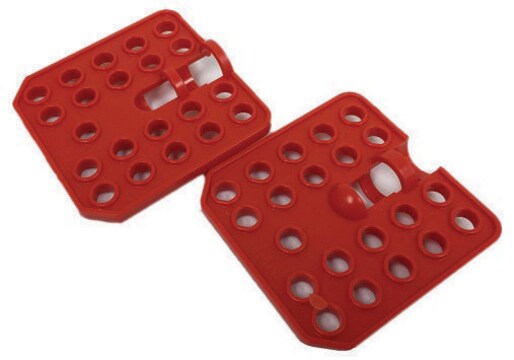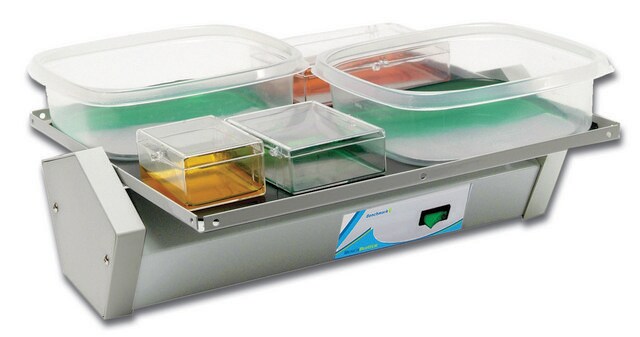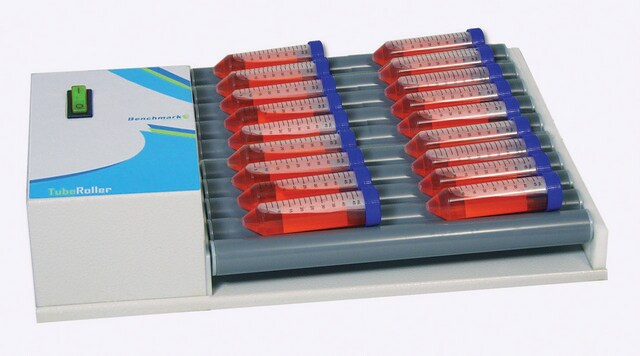Z674591
Mini LabRoller™ rotator
AC/DC input 230 V AC, Schuko plug
Zaloguj sięWyświetlanie cen organizacyjnych i kontraktowych
About This Item
Kod UNSPSC:
41103811
Polecane produkty
producent / nazwa handlowa
Labnet H5500-230V-EU
Parametry
24 rpm speed
szer. × śr. × wys.
8.4 in. (21.3 cm) × 4 in. (10.2 cm) × 5 in. (12.6 cm)
Szukasz podobnych produktów? Odwiedź Przewodnik dotyczący porównywania produktów
Opis ogólny
Simple, yet versatile, the Mini LabRoller Rotator is designed for mixing samples in both a horizontal and vertical plane. The Mini LabRoller Rotator is supplied with a rotisserie for 36 x 1.5 or 2.0 mL tubes. Two additional rotisseries are available separately.
When a rotisserie is inserted horizontally (tubes held vertically), an end over end motion is produced. The unit can then be used for simple rotating, or rested on either end to create a tumbling motion. Placing the Mini LabRoller on the end with the power switch will create a more vigorous tumbling motion than resting it on the opposite end.
A rocking motion is achieved by simply inserting pegs to limit the movement of the rotisserie to 20°, 45°, or 60°. Any of the three available rotisseries can be used as a rocking platform.
Using the supplied rod, the rotisseries may be mounted vertically (tubes held horizontally). In all configurations, the speed of the rotisserie is fixed at 24 rpm.
- Compact design conserves valuable bench
- Simple construction allows for easy cleaning and decontamination
- Wide selection of motions from gentle rolling, tumbling, to end over end mixing
- Cold room and incubator compatible
- Three easily interchangeable rotisseries to hold various size tubes and plates
- Operating conditions: +4 °C - 65 °C, up to 85% RRH non-condensing
When a rotisserie is inserted horizontally (tubes held vertically), an end over end motion is produced. The unit can then be used for simple rotating, or rested on either end to create a tumbling motion. Placing the Mini LabRoller on the end with the power switch will create a more vigorous tumbling motion than resting it on the opposite end.
A rocking motion is achieved by simply inserting pegs to limit the movement of the rotisserie to 20°, 45°, or 60°. Any of the three available rotisseries can be used as a rocking platform.
Using the supplied rod, the rotisseries may be mounted vertically (tubes held horizontally). In all configurations, the speed of the rotisserie is fixed at 24 rpm.
Informacje prawne
Mini LabRoller is a trademark of Labnet Intl., Inc.
This page may contain text that has been machine translated.
Certyfikaty analizy (CoA)
Poszukaj Certyfikaty analizy (CoA), wpisując numer partii/serii produktów. Numery serii i partii można znaleźć na etykiecie produktu po słowach „seria” lub „partia”.
Masz już ten produkt?
Dokumenty związane z niedawno zakupionymi produktami zostały zamieszczone w Bibliotece dokumentów.
Klienci oglądali również te produkty
Nasz zespół naukowców ma doświadczenie we wszystkich obszarach badań, w tym w naukach przyrodniczych, materiałoznawstwie, syntezie chemicznej, chromatografii, analityce i wielu innych dziedzinach.
Skontaktuj się z zespołem ds. pomocy technicznej